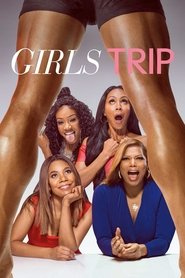I obviously realise this film is chiefly a piece of counterprogramming set against regular Hollywood fare and that I don't feel underrepresented at the multiplex, so the whole experience of this kind of film is entirely different for someone like me. Still, wow, there was very little for me here beyond the low-key scenes where the jokes weren't forced and obviously telegraphed. Less I say about the gross-out humour, the better, but I will remark that they thought the urinating over Bourbon Street gag was so funny that they did it twice. Sheesh.
One theme that genuinely irked me was that I initially thought the movie was going to send up the empty rhetoric of the wealthy 'lifestyle guru'. The kind of person who, let's be honest, exploits some disempowered and underprivileged demographic by offering platitudes about working hard and positive thinking. A too-easy target, perhaps, but the film turned out to take almost completely the opposite line entirely. Related to this was the film's galling endorsement of corporate-friendly identity politics. Excuse my British ignorance for a moment, but for the longest time during Girls Trip, I thought the Essence festival was invented by the film as an exaggerated version of those kinds of events that were based on a good, worthy idea at some point in the past, but are now running entirely on the fumes of those initial virtuous intentions but have now been completely co-opted by vodka brands, weightless interviews and B-list celebrities. But no — it turns out to be a completely real thing, and the film believes that the brands and celebrities are Actually What Makes It Good, and not the lame, uncomfortable politics. That happily disappeared years ago.
This 2017 film was somewhat interesting on the role of the internet and social media: with the film's position towards the "Instagram skank", the paparazzi and the gossip columnist who repents of her sins in a moment of catharsis, it seemed to be taking a very Establishment Media line position against all horrible these arrivistes who don't know their place in the hierarchy. Little did the film know that Instagram would hit the stratosphere in the years following and turn all this inside out and upside down, and so all this is almost naively charming in retrospect. It was similarly interesting to wonder which of these influencers would have peddled 'alternative' health information during Covid as well.
Anyway, this is pretty obviously derivative of white boy movies such as The Hangover (2009) and Road Trip (2000), but it also seems to return to some of Malcolm D. Lee's own work — spot the 'reunion' narrative framework of The Best Man as well the clumsily inserted religious scene that mirrors the ones in that film as well. All of these films are not really made for me, so, again, I feel a little unfair complaining...
After parodying [Ryan's] immaculately manufactured notion of having it all, the movie refuses to puncture it outright. The script more or less turns around and says she just needed a slightly different configuration of “all” than she thought—gentleman instead of cad, plus more time with the girls. This is all ultimately portrayed as an easy (and enriching) fix, backed up by a climactic festival speech so long, unfunny, and empty that it feels like Ryan is about to announce her candidacy for office.
— Jesse Hassenger (AV Club)
At one point, it appears that Girls Trip is ready to satirize the self-help industry and the branding that accompanies it but the screenplay inexplicably doesn’t follow through. It’s as if it’s willing to poke a little fun at all the Oprah wannabes but is afraid of actually insulting anyone. In fact, gross-out humor aside, Girls Trip is surprisingly toothless. Crudeness doesn’t equate to edginess. The movie has plenty of the former but none of the latter.
— James Berardinelli (Reelviews)

